Storming the Bastille
Paris' Place de la Bastille was draped in red on Sunday, with Communist Party flags hanging in every tree, and l'Internationale ringing out from thousands of throats. The march was held to Bastille - birthplace of the French Revolution - on the anniversary of the founding of the Paris Commune, and was dripping in historical symbolism. In any other country, this would have to be a historical renactment society, but this is France, where not only does the Communist Party still exist, but it's managed to ally itself with an assortment of other left wing groups under the leadership of a charismatic former Socialist minister, to form a coalition that's now scoring over 10% in the polls. How has Jean-Luc Melenchon managed it?
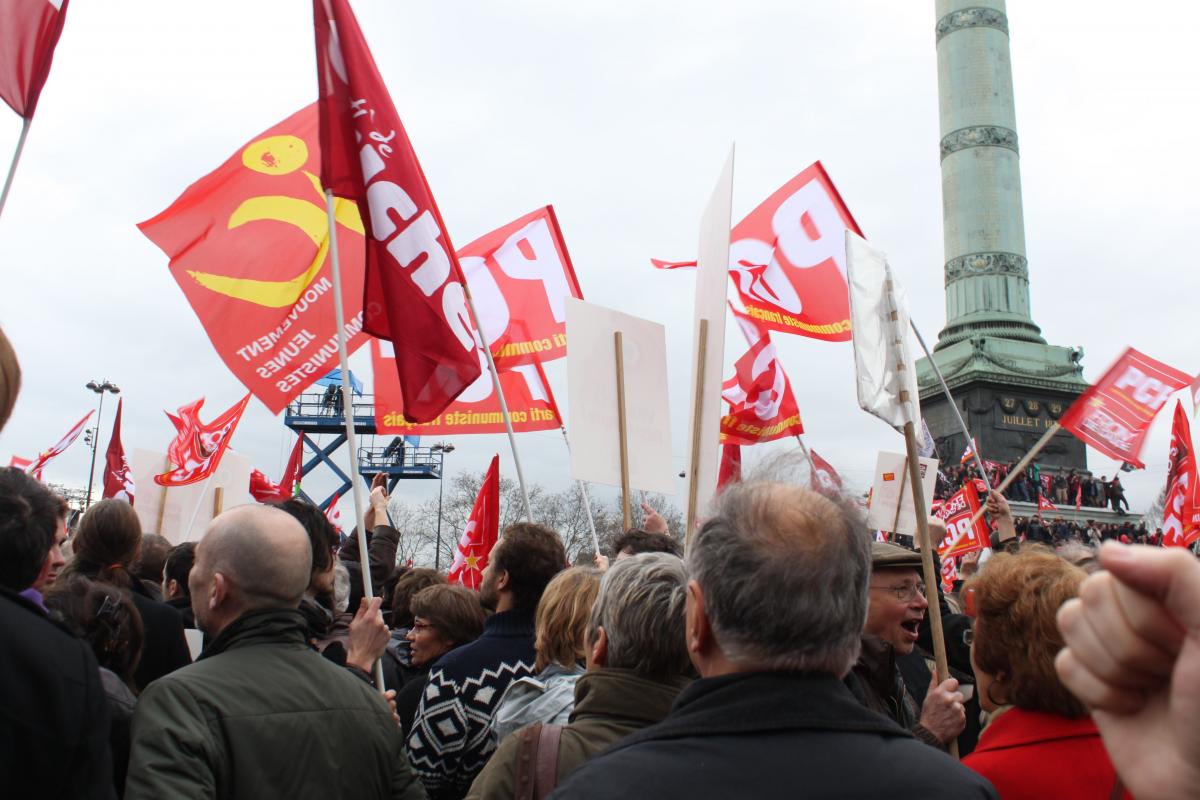
Firstly, he's struck a nerve in troubled economic times; the French, like every other European nation, are being subjected to public sector budget cuts and feel they're having to stretch already meagre budgets thinner every month, while the bankers who caused the crisis continue to make telephone number bonuses. Of course, Socialist candidate François Hollande has tried to placate this anger by proposing a 75% tax on incomes over a million euros, and describing finance as his enemy, but for many voters it looks too much like an electorally convenient last-minute conversion from a man who has been at the heart of the political establishment for decades without having too much to say about bankers. Across Europe, there is a 'plague on all your houses' feeling, a widespread rejection of mainstream politics on both the right and left, a feeling that they're all part of a detached ruling class that don't understand how ordinary people are suffering. Hollande's long leadership of the Socialist Party, his elite education and his bourgeois manner all play against him with these voters. The 'anti-system' tendency has grown so much that even Nicolas Sarkozy has tried - risibly - to position himself has somehow against the establishment, although of course his famous, and famously shady, relationships with some very rich friends, and the subsequent series of corruption scandals his government has seen, have done more than anything to make the French reject their political class. The anger at this seemingly endless series of allegations - the Bettencourt affair, the suitcases of cash from African leaders, the cash from Gaddafi, the Karachigate affair involving kickbacks from 1990s arms deals, I could go on - has coupled itself with a European-wide anger about the little people having to pay for the crisis, and it's found a home in the Melenchon campaign. I was talking to a friend the other day about why the 'indignado' and Occupy movements didn't take off in France, when the book that inspired them, Stephane Hessel's Indignez-vous, was written by a Frenchman; I think part of the answer is that the French actually have a political party that represents that feeling.
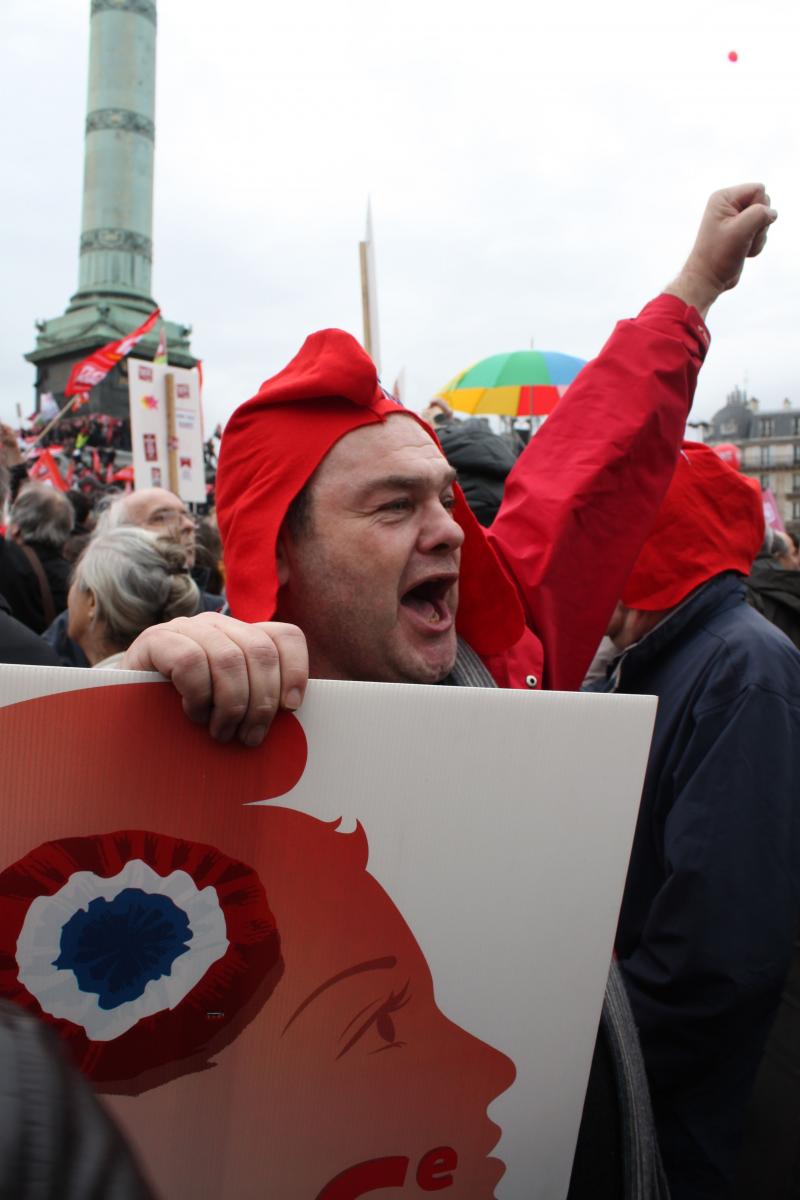
It would be wildly inaccurate, though, to think that the only people attracted to Melenchon are the kind of studenty types and hardcore leftists who would form the core of an Occupy demonstration; Sunday's march included teachers' unions, immigrants' rights groups, and grannies who told me they'd never been to a demonstration before. All sorts of groups in French society have been made feel persecuted by the rhetoric of the Sarkozy government: Muslims and other ethnic minorities upset by the increasingly xenophobic tone; the unemployed, low paid and teachers, who' ve all been accused by the president of not working hard enough; and it's served to radicalise people who wouldn't otherwise be found marching. Melenchon doesn't just focus on economic issues, eiher; he's directly taken the fight to Marine le Pen among the working-class voters most tempted to vote for her, making the anti-racism cause his own, and on Sunday his speech championed gay marriage and abortion rights. He's even managed the trick of pulling together the ideologically diverse strands of France's far left; smaller parties Workers' Struggle and the New Anticapitalist Party (both essentially Trotskyist) picked up 6% of votes between them last time round, but both have now collapsed and will be lucky to get 1% put together, because Melenchon has won over all their supporters.
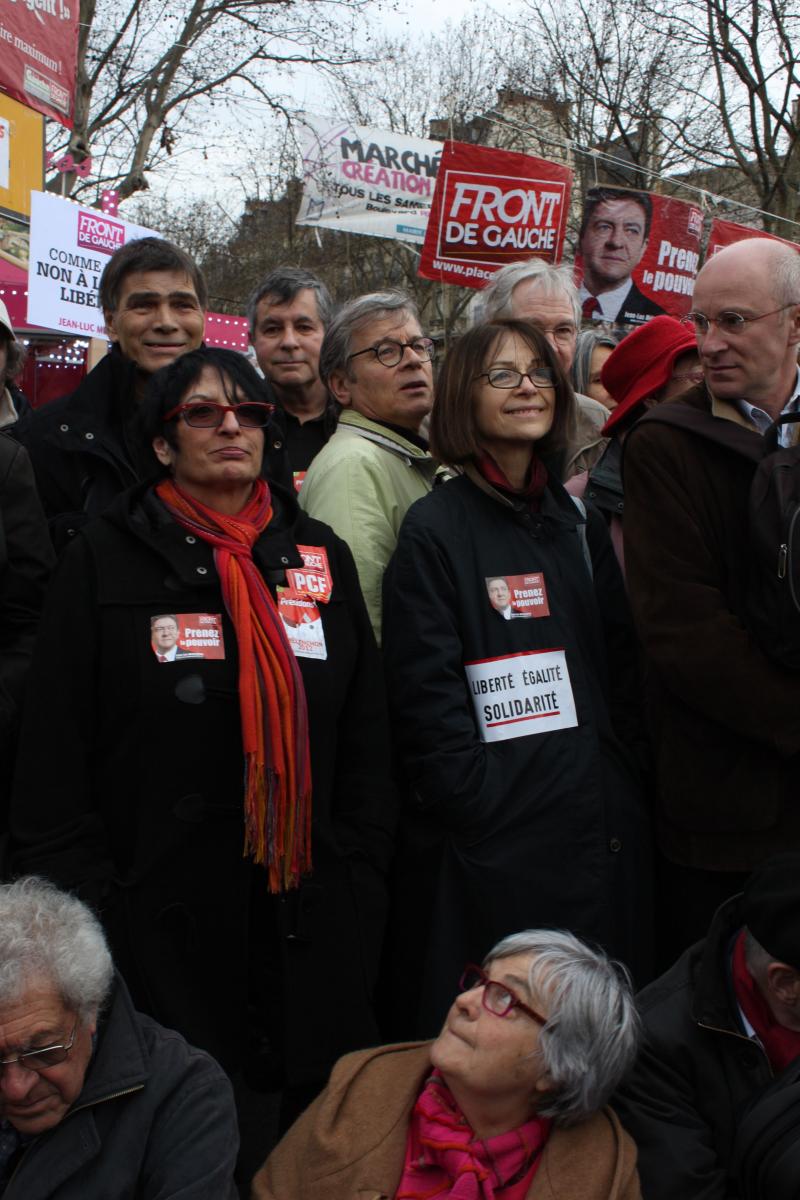
He's also profiting from the weakness of François Hollande, who just can't muster the language to talk to ordinary voters or the charisma to inspire them. He's given some good speeches, sure, but this weekend I was Hollande do his best at inspiring an audience on Saturday, and Melenhon on Sunday, and it's quite clear who is the master. Hollande is frequently accused of profiting more from popular loathing of Sarkozy then any actual popularity of his own, but Melenchon's certainly aren't just anti-Sarkozy voters - they're impassioned voters. It was telling that Melenchon didn't even mention any of the other candidates in Sunday's speech, focusing on his own policies, historical symbolism, and, yes, calls for a revolution. That might sound rather retro, and Melenchon is still only fifth in the polls, but François Hollande would have done well to listen carefully.
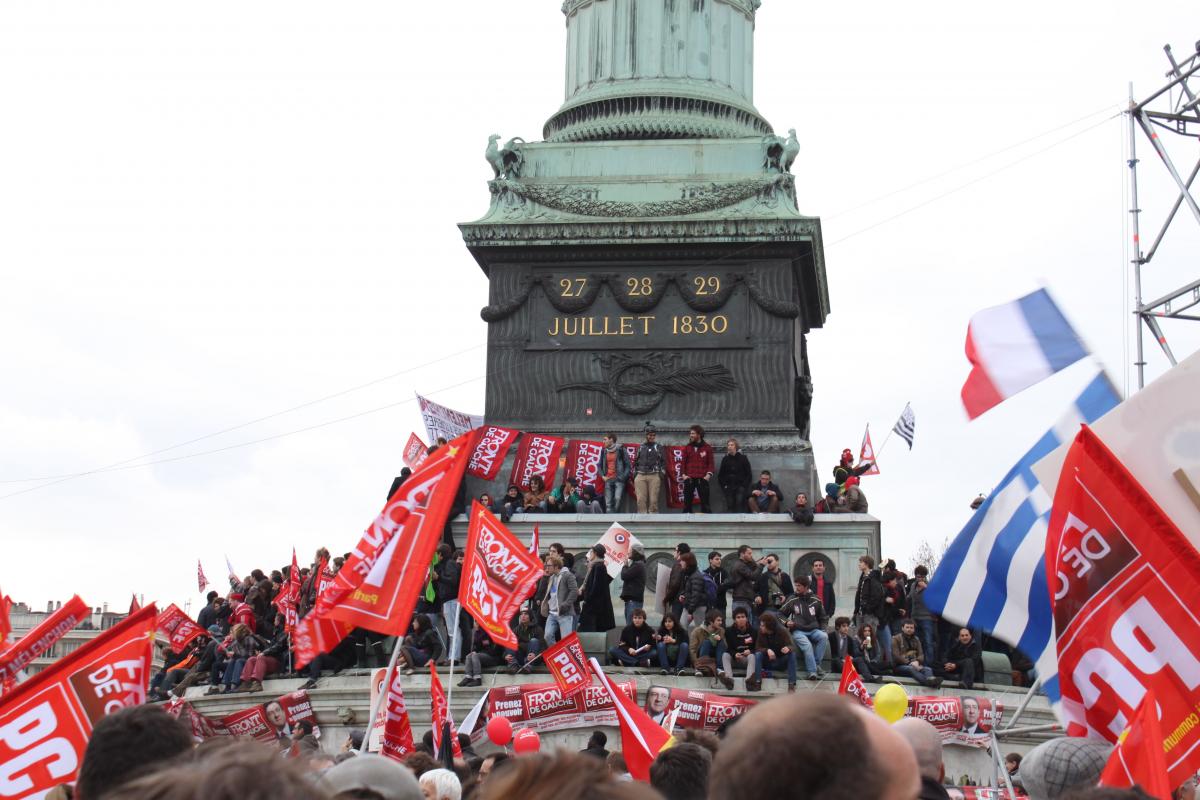
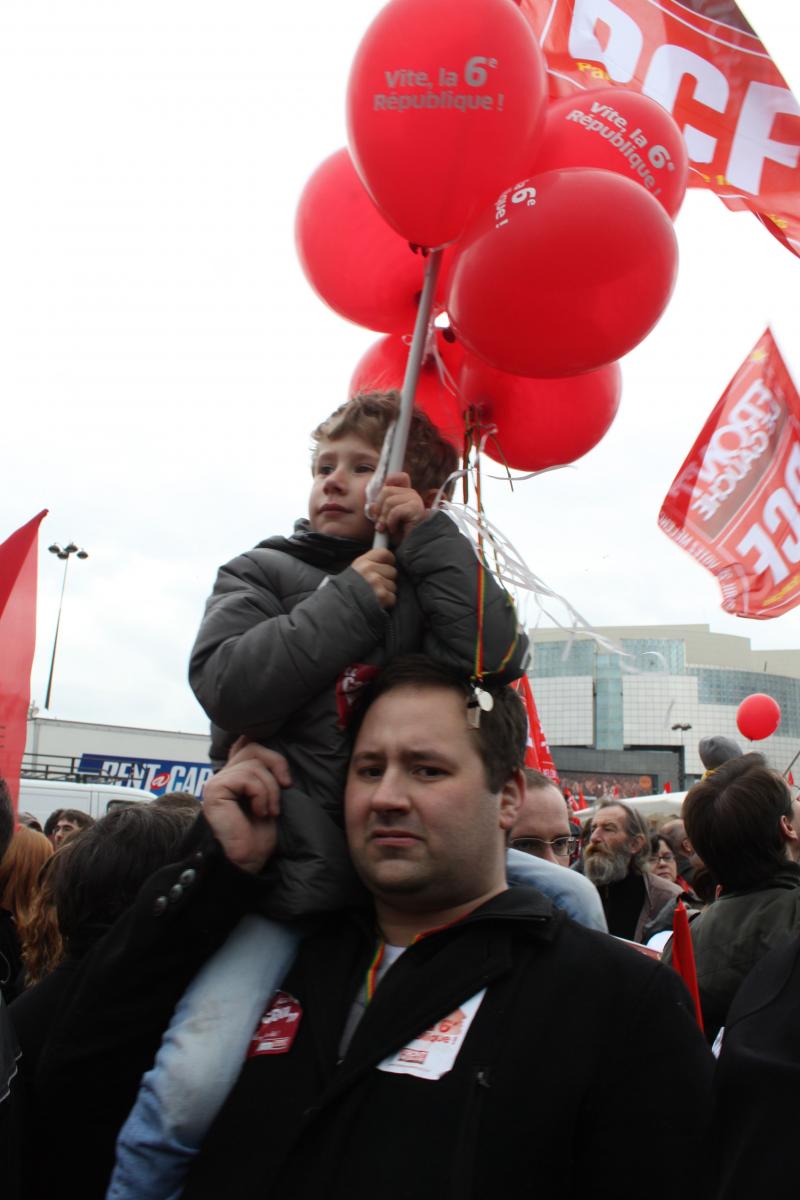
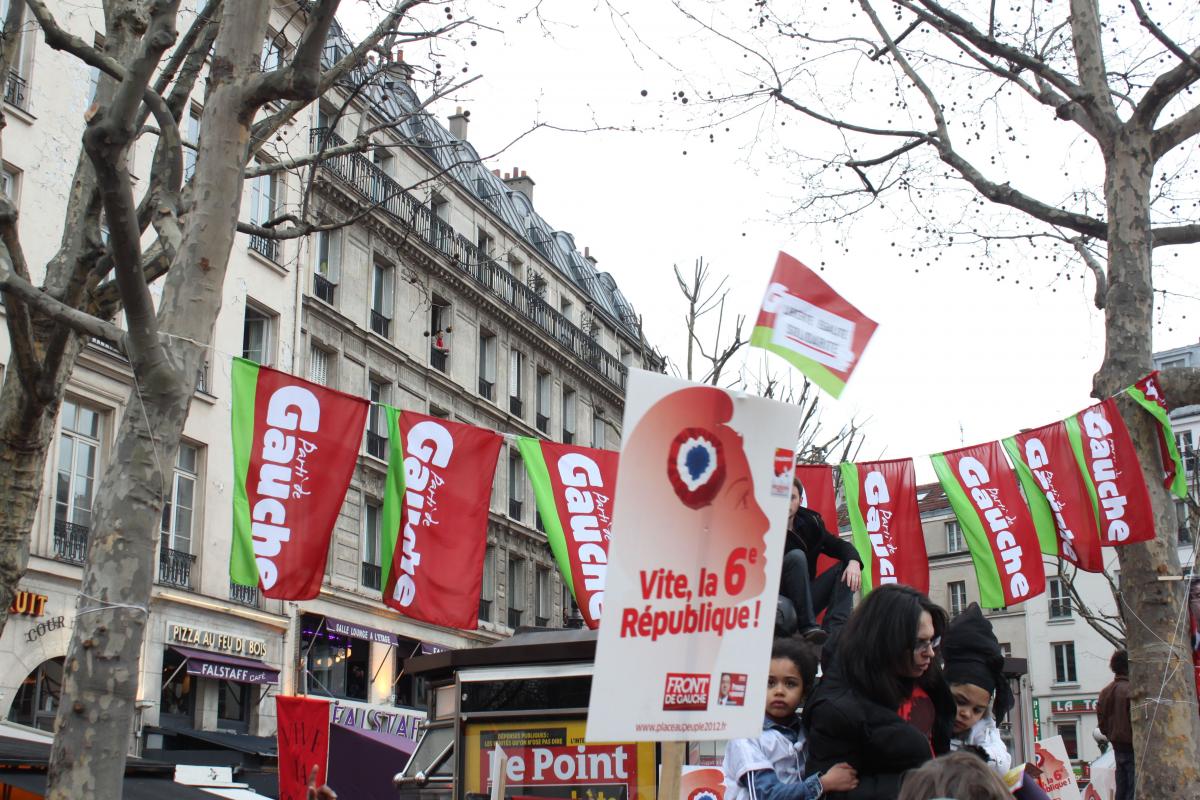



2 Comments
Post new comment